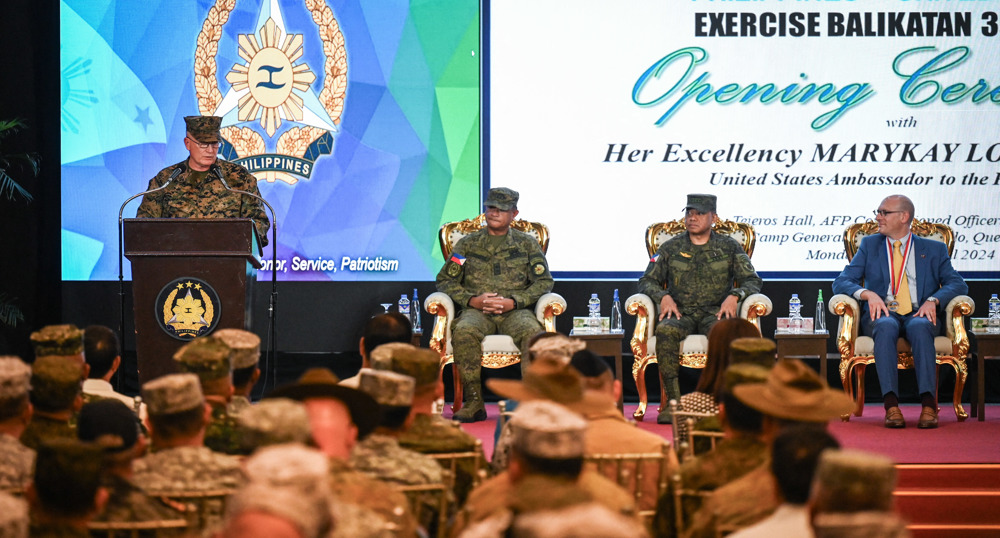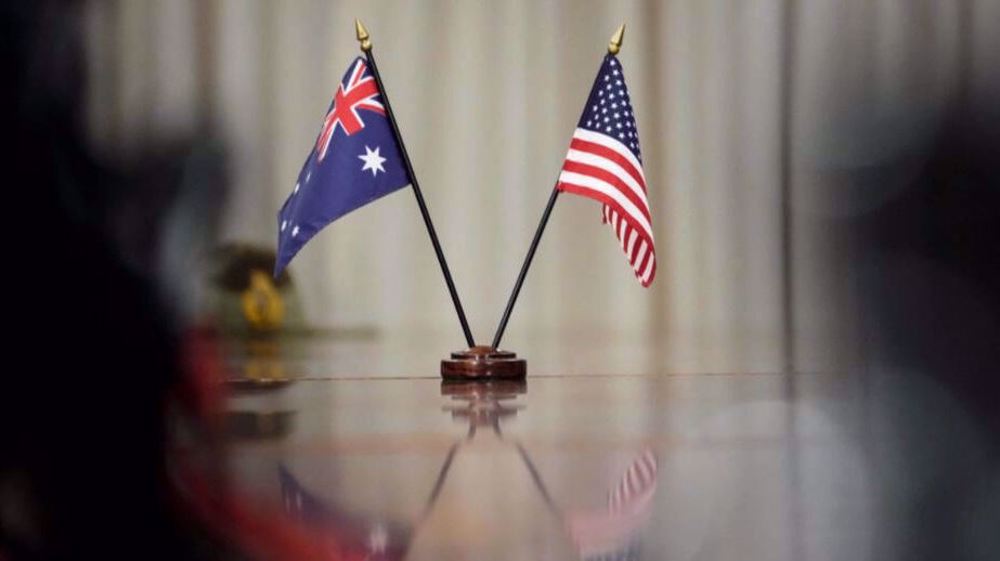China to send strategic bombers for military drills in Russia
The Chinese air force will reportedly dispatch strategic bombers, fighter jets and transport aircraft to participate in international drills in Russia later this month.
A spokesman from the People's Liberation Army (PLA) Air Force China said in a report published in the South China Morning Post on Friday that Xian H-6K bombers, which have been patrolling the South China Sea and Taiwan Strait, will take part in the International Army Games in southern Russia and parts of the Caucasus on July 28.
It is the first time the strategic bombers and Y-9 transport aircraft, which has a range of around 7,800 kilometers, will participate in overseas military exercises.
China will join Russia, Belarus, Azerbaijan, Kazakhstan, Armenia and the Islamic Republic of Iran in the upcoming drills.
Yue Gang, a retired colonel with the PLA, told the Hong Kong-based news agency that China's goal was to determine the strengths and weaknesses of the bombers.
“It is really difficult to know how big the gap is between the Chinese aircraft and the ones used by overseas air forces without joining overseas exercises like this,” he said. “So the aim is to learn from the advanced bombers of Russia.”
Yue stressed that the PLA’s air force sought to learn from Russia about both hardware development and pilot training.
China has the world’s largest standing army and has been engaged in an ambitious modernization program that reportedly includes investment in technology and new equipment such as stealth jet fighters and aircraft carriers.
The H-6K bombers, enjoying a reported combat range of 3,500 kilometers, carried out take-off and landing drills over the South China Sea in May after US Air Force B-52 bombers flew around the region, over which Beijing claims sovereignty.
China claims nearly all of the South China Sea, despite partial counterclaims by Brunei, Malaysia, Taiwan, Vietnam and the Philippines.
The United States more often than not dispatches warships to disputed areas of the South China Sea in a bid to challenge China's extensive sovereignty claims in the territory.
China has repeatedly criticized the US military presence in the region and suspects the military drills are part of efforts to contain Beijing.
Washington's military presence in the region, halfway around the world, has also led to worries about an increasing risk of accidental collisions that could spark a consequential wider conflict.
The United States presumes it would be limiting China’s maritime influence in the sea by invoking “freedom of navigation” rights. The US has also taken sides with several of China’s neighboring countries in their territorial disputes in the busy sea, through which five trillion dollars in ship-borne trade passes annually.
Beijing accuses Washington of meddling in regional issues and escalating the situation in the region.
Meanwhile, the US claimed on Saturday that a Chinese ship was spying on a major US-hosted military exercise off the coast of Hawaii, from which Beijing had been disinvited due to US opposition to the country’s alleged militarization of the South China Sea.
"The US Pacific Fleet has been monitoring a Chinese navy surveillance ship operating in the vicinity of Hawaii outside US territorial seas," US Navy Captain Charles Brown, a spokesman for US Pacific Fleet, said in a statement.
"We expect this ship will remain outside of US territorial seas and not operate in a manner that disrupts the ongoing Rim of the Pacific maritime exercise."
The Rim of the Pacific exercise, known as RIMPAC and previously attended by China, is billed as the world’s largest international maritime exercise and held every two years in Hawaii in June and July.
China was disinvited from the drills in May over what the Pentagon called Beijing's "continued militarization of disputed features in the South China Sea," including the deployment of anti-ship missiles, surface-to-air missile systems and electronic jammers.
China’s Defense Ministry voiced regret after the United States withdrew an invitation to China, saying in a statement on Thursday that closing the door would not promote mutual trust and cooperation. The statement noted that the United States had “ignored the facts and hyped up the so-called ‘militarization’ of the South China Sea,” using it as an excuse to take back invite to China.
Columbia, Yale students bent on ending US support for Israeli genocide
VIDEO | Genocide in Gaza
Iran calls on BRICS to play role in stopping Israeli crimes
President Raeisi’s historic visit opens new chapter in Iran-Pakistan ties
Russia: Poland’s talks on hosting US nuclear weapons ‘dangerous’
India’s home minister vows to end Muslim reservation if his party wins
UN expert calls for arms, oil embargo against Israel
VIDEO | New World Order











 This makes it easy to access the Press TV website
This makes it easy to access the Press TV website